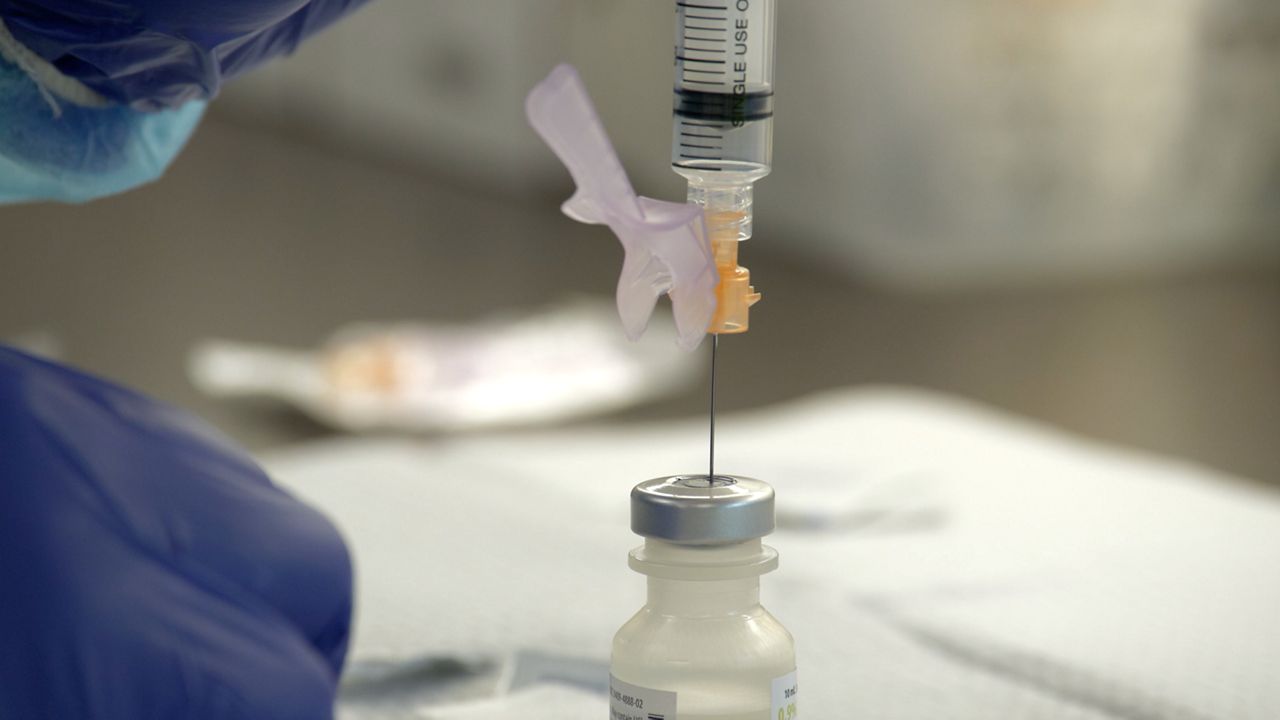About two-thirds of mild side effects blamed on COVID-19 vaccines are likely not related to the shots at all, but rather from what is known as the “nocebo effect,” a new study finds.
What You Need To Know
- About two-thirds of mild side effects blamed on COVID-19 vaccines are likely not related to the shots at all, but rather from what is known as the “nocebo effect,” a new study finds
- The study, led by researchers at Harvard Medical School and Beth Israel Deaconess Medical Center in Boston, analyzed data from 12 placebo-controlled clinical trials of COVID-19 vaccines
- The scientists found that adverse events were significantly higher in the vaccine group, but that a considerable portion of placebo recipients said they, too, experienced side effects
- The nocebo effect occurs when a person experiences a negative response from a treatment that should not cause it, which could be triggered by anxiety or expectations
The study, led by researchers at Harvard Medical School and Beth Israel Deaconess Medical Center in Boston, analyzed data from 12 placebo-controlled clinical trials of COVID-19 vaccines, which included reports of side effects from 22,802 vaccine recipients and 22,578 placebo recipients.
The scientists found that adverse events were significantly higher in the vaccine group, but that a considerable portion of placebo recipients said they, too, experienced side effects. Thirty-five percent of those in the placebo group said they had systematic side effects — most commonly headaches or fatigue — while 16% reported at least one local side effect, such as pain at the injection site, redness or swelling. In the vaccine group, 46% had at least one systemic adverse event, and 67% had a local side effect.
Following the second injection, the rate of side effects dipped in the placebo group — 32% systemic, 12% local — while it climbed to 61% and 73%, respectively, among the vaccine group, which the researchers theorized was, in part, related to a more robust immune response.
A placebo effect is when a patient reports a beneficial response to a treatment that that cannot be attributed to the properties of the placebo itself, suggesting a psychological link to their improvement. The nocebo effect is the opposite — when a person experiences a negative response from a treatment that should not cause it, which could be triggered by anxiety or expectations.
“Adverse events after placebo treatment are common in randomized controlled trials,” Julia Haas, an investigator in the Program in Placebo Studies at Beth Israel Deaconess and the study’s lead author, said in a news release. “Collecting systematic evidence regarding these nocebo responses in vaccine trials is important for COVID-19 vaccination worldwide, especially because concern about side effects is reported to be a reason for vaccine hesitancy.”
The study, published Tuesday in JAMA Network Open, suggests that people in the vaccine group reported side effects that were imagined or not caused by the vaccine. The researchers’ found that 76% of systemic side effects after the first shot and 52% following the second shot could be attributable to the nocebo effect. They estimate 24% of local adverse events after the initial jab and 16% after the second are also related to nocebo responses. Overall, that amounts to about two-thirds of systemic side effects being spurred by the nocebo effect.
The study only analyzed common side effects that occur soon after vaccination, not long-term symptoms requiring follow-up.
The study’s authors say understanding the nocebo effect on COVID-19 vaccines is important because common minor ailments are likely being misattributed as side effects and that, in the case of flu shots, there is evidence that concerns about adverse events lead some to refuse the vaccine.
The researchers say the reported COVID-19 side effects should continue to be listed in information leaflets. But they also believe more information about the nocebo effect should be provided, which they argue could reduce concerns about side effects and improve vaccine uptake.



